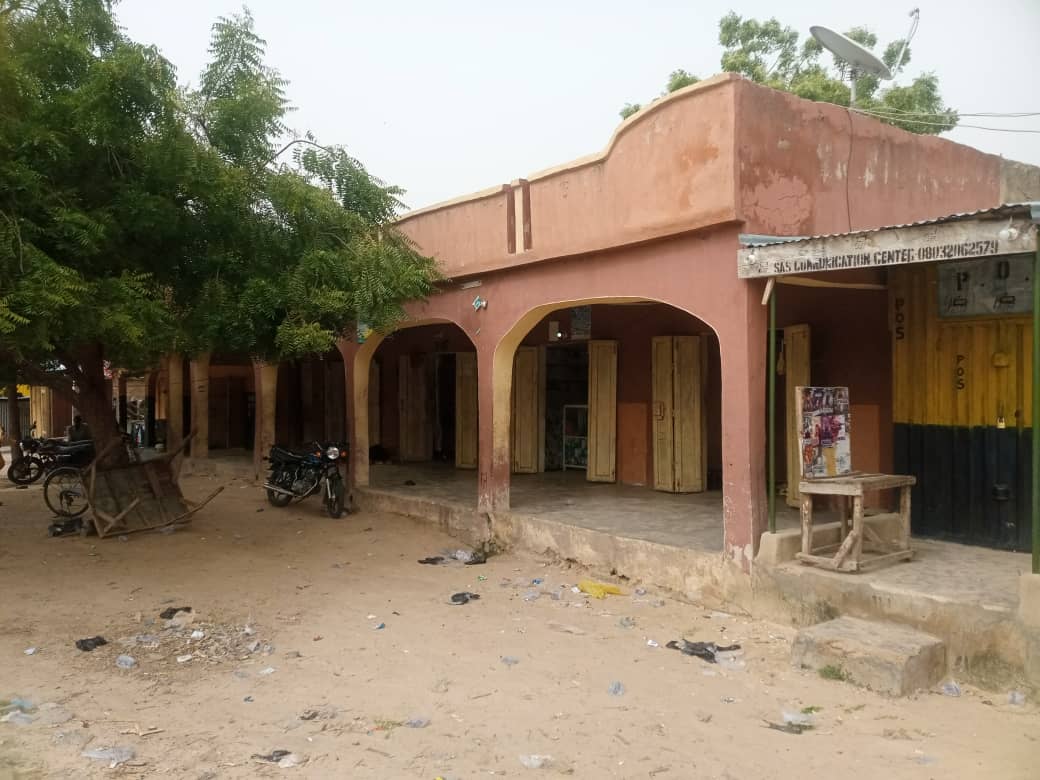Stall spaces in Maigatari Market, Jigawa, Nigeria.
The recent coup in Niger has unleashed a series of events that have profoundly affected neighboring towns and businesses, disrupting the daily lives and overall well-being of individuals and small-scale traders along its borders.
In a region where trade and connectivity are vital for improving livelihoods, the recent coup in Niger has cast a long shadow of uncertainty and disruption over a border town situated along the Niger-Nigeria border. For example, the closure of the Nigeria-Niger Republic border has posed unplanned difficulty through the Maigatari market in Jigawa State, renowned for its trade in horses, camels, cattle, and other livestock between Niger, Mali, Chad, and Cameroon.
This border closure has dealt a severe blow to local businesses, subjecting them to a lot of challenges. Traders who once freely crossed the border now find it difficult to do so, resulting in shortages of goods and increased prices. Seven Nigerian states – Sokoto, Kebbi, Katsina, Zamfara, Jigawa, Yobe, and Borno – share borders with Niger, this goes further to show the severity of this occurence.
According to Abubakar Badamasi, a registered member of Amana Market and a trader in Maigatari market, “The problem between Nigeria and the Niger Republic has had a profoundly negative impact on my business. Entering Niger is now impossible and has made it difficult for me because I go to the country to get goods but now it’s impossible”. His concern and difficulty echo throughout the market, where countless others face similar circumstances.
Beyond the economic set back, the border closure has taken a toll on personal lives. Relationships have been strained, as families and loved ones struggle to visit each other. As Abubakar Badamasi explains, “My girlfriend who lives in Niger no longer visits me due to this situation. I am left with communicating with her through WhatsApp.”
It’s important to note that this is not an isolated event that must be viewed within the broader context of Nigeria-Niger Republic relations. In times of crisis like these, insurance companies play a pivotal role in holding up the capacity of these local businesses. Some forward-thinking investors have recognized the potential of markets like Maigatari and are exploring opportunities to provide financial support to affected traders and farmers.
Efficient trade routes can be established to reduce the impact of border closures. Policies designed to meet the specific needs of farmers and traders operating in regions vulnerable to political crises can provide a safety net. The collaboration between investors and insurance companies can cover losses resulting from border closures, damage to goods in transit, or other unforeseen incidents affecting the finances of those dependent on markets like Maigatari for their livelihoods.
This experience sheds more light on the fragility of supply chains in regions where political stability cannot be guaranteed. A resolution is needed to restore the flow of trade and social activities. In the meantime, the resilience of the people of Maigatari shines through, and as efforts to address these challenges are in place, there is optimism that the market will emerge from this period of disruption stronger and more resilient than ever before.

